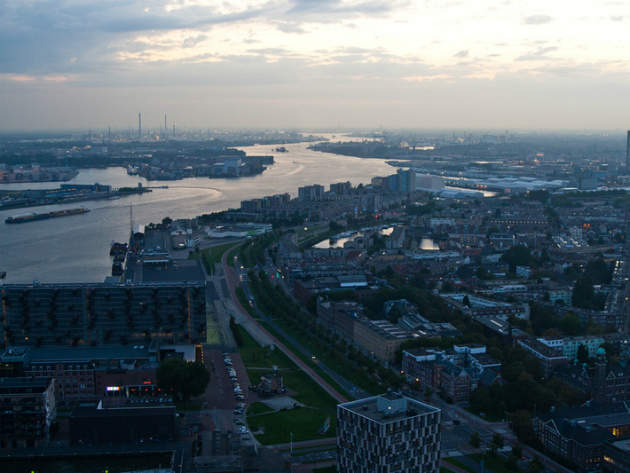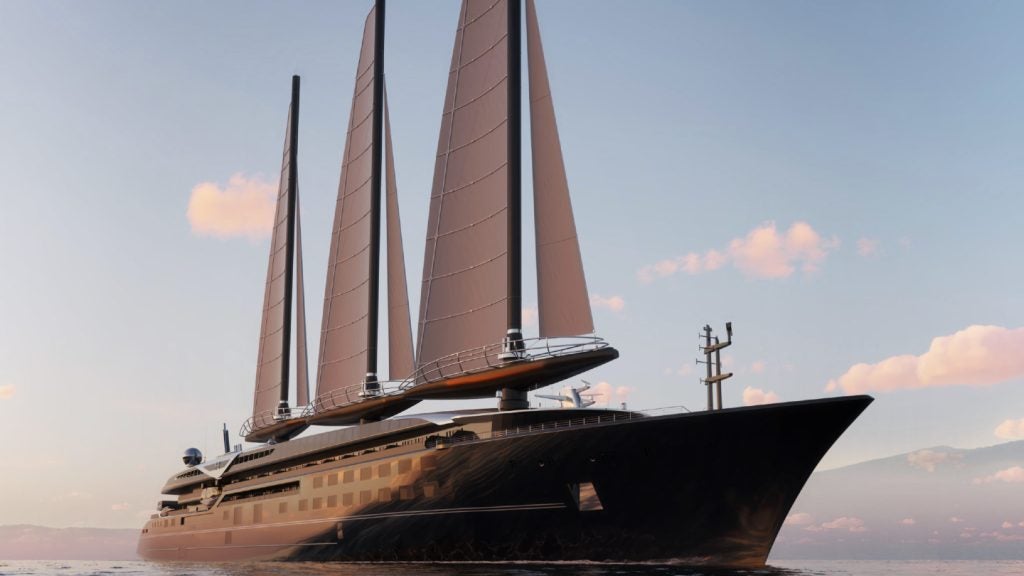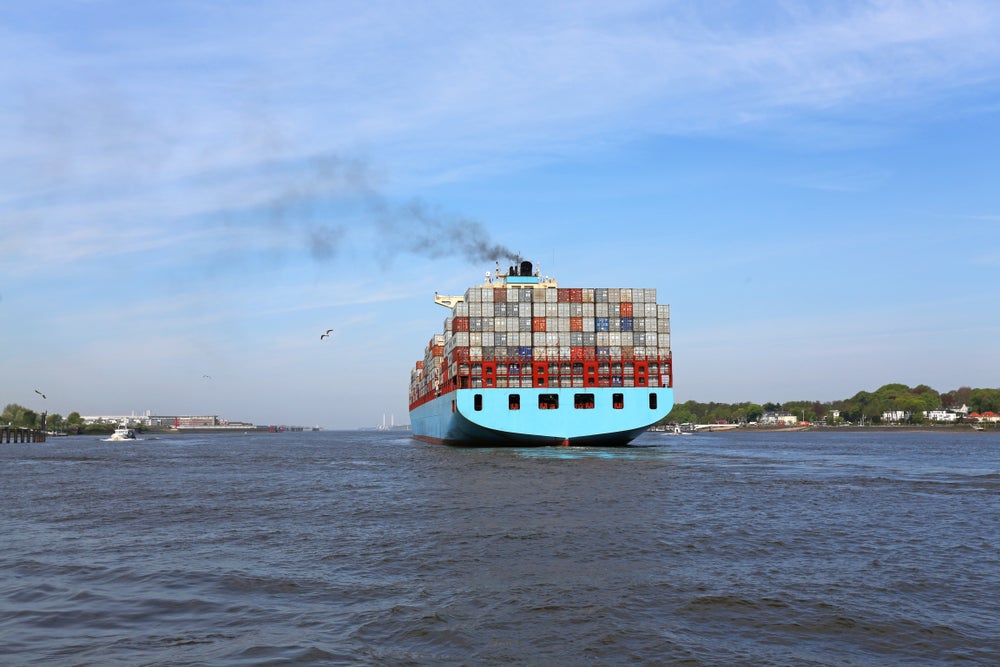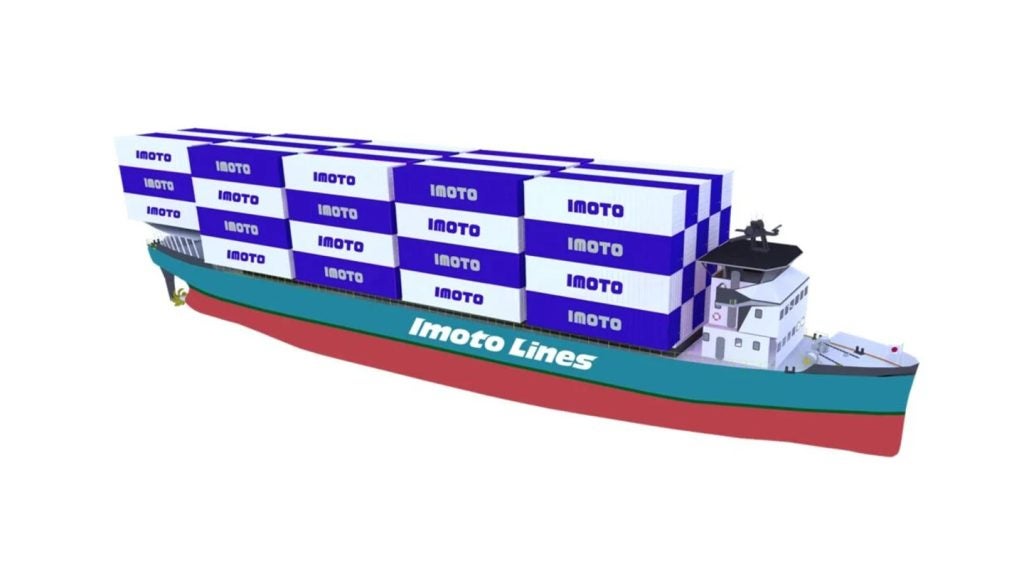
The adoption of liquefied natural gas (LNG) as a transport fuel has been gaining ground over the past few years, particularly in the shipping sector, which currently makes up around 2.2% of global emissions of carbon dioxide (CO2), the main greenhouse gas responsible for global warming.
Headline-grabbing initiatives, such as the world’s first LNG cruise ship, the first LNG powered icebreaker, or industry coalitions, tout the benefits of switching from traditional heavy fuel oil and diesel to cleaner fuels for lower emissions and costs, less maintenance, as well as quieter vessels.
LNG adoption was also given a boost by the International Maritime Organization’s (IMO) cap on sulphur emissions before 2020, which forces ships to meet the new 0.5% requirement by using low-sulphur compliant fuel oil, such as LNG or methanol.
Now, the new joint study from the Port of Rotterdam Authority and the National LNG Platform plans to take it one step further, by looking into developing bio LNG as a transport fuel in the port.
Derived from renewable resources such as biomass, bio LNG can reduce CO2 emissions to “virtually zero,” says Sjaak Poppe, spokesman for the Port of Rotterdam Authority.
The study, which will receive the technical, legal and financial input of eight members of the National LNG Platform, plans to draw conclusions by the second half of this year, and depending on the outcome, Rotterdam could begin developing a bio LNG programme.
How well do you really know your competitors?
Access the most comprehensive Company Profiles on the market, powered by GlobalData. Save hours of research. Gain competitive edge.

Thank you!
Your download email will arrive shortly
Not ready to buy yet? Download a free sample
We are confident about the unique quality of our Company Profiles. However, we want you to make the most beneficial decision for your business, so we offer a free sample that you can download by submitting the below form
By GlobalDataEliminating CO2 from shipping
Under the new partnership, research will be done into existing opportunities to develop bio LNG from biological waste, such as manure and sewage sludge, and use it as a transport fuel in the Port of Rotterdam.
As an energy source in shipping, LNG is the cleanest fuel on the market, offering 20%-25% reduction in CO2, about 80% reduction in NOx and 100% reduction in SOx and particulate matters (PM).
Since 2011, the port authority has been working towards a complete supply chain for LNG, acting as the European import, export and regasification hub for the fuel. After regasification at the Gate terminal in Rotterdam, the gas is transported through pipelines to the Dutch and European gas network.
But bio LNG could go much further.
“This gets more interesting if CO2 prices go up or CO2 emissions are capped,” Poppe says. “And of course zero CO2 emissions are a good marketing point.”
The research will first look at the existing and expected availability of production technologies of bio LNG until 2030, followed by a market study into the availability of sustainable feedstock and the future development of demand. Finally, there will be an evaluation of the business cases for the production, transport and transhipment of bio LNG in Rotterdam’s port area.
International companies Shell and Engie, along with Dutch enterprises Ahold Delhaize, Eneco, Deltalinqs, Rolande, Gasunie, Pitpoint and Energy Valley Foundation will be cooperating on the research.
ENGIE has been working on the development of bio LNG since May last year, when it announced a pilot project known as BioGNVAL that uses sludge from a wastewater treatment plant in France to produce bio LNG and liquefied CO2.
Is the market ready?
The adoption of standard LNG in the shipping industry is currently seeing slow growth. Indeed, the global LNG shipping fleet consisted of 439 vessels as of January 2017, according to the International Gas Union, a 10% increase over the previous year.
But a new roadmap for emissions reduction in shipping currently in the works at IMO level fuels hope.
“There is real interest in bio LNG on the market [as] the shipping industry is already looking at climate reduction measures,” Poppe says.
Under the new strategy, ships of 5,000 gross tonnage and above will have to collect consumption data for each type of fuel oil they use, as well as other, additional, specified data including proxies for transport work, the IMO ruled in October last year. However, environmental groups have been highly critical of the move, since the regulation won’t take effect before 2023.
In its latest report, the International Energy Agency (IEA) highlights that the international shipping sector is “not on track” for the 2°C scenario targets set for 2025, with limited developments in the sector, and that “implementing IMO’s final GHG strategy only by 2023 will have very little impact on the possibility of meeting 2025 [2°C scenario] targets.”
The organisation recommends stimulating the engagement of ports in encouraging greenhouse gas (GHG) reductions in ships, and introducing carbon taxes on shipping fuels, both of which could heavily impact the industry’s motivation to look at new options, such as bio LNG.
The state of transport biofuels is reviewed in the same report, which notes that more than 57 billion litres of advanced biofuels are required by the 2°C scenario in 2025. The rapid commercialisation of biofuels is strongly encouraged for a 50% chance of limiting the average global temperature increase to 2°C.
“Policy support for advanced biofuels is growing, including the announcement of advanced biofuel mandates in an increasing number of European countries,” the report reads.
Whether the maritime industry is ready to embrace yet another new shipping fuel remains to be seen. But as one of the forerunners in LNG promotion, the Port of Rotterdam now has the opportunity to pursue one of the hottest new fuels in the sector.







